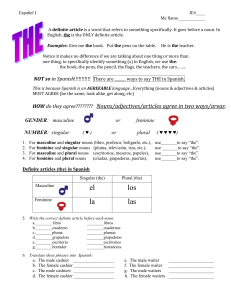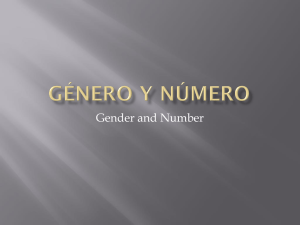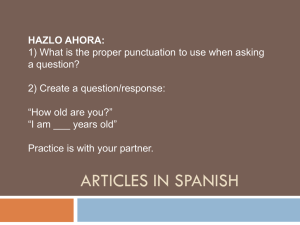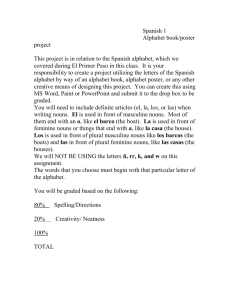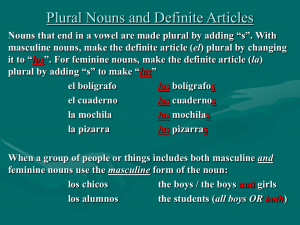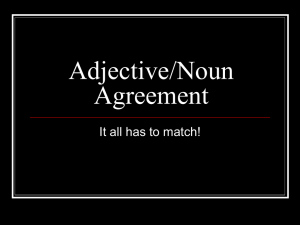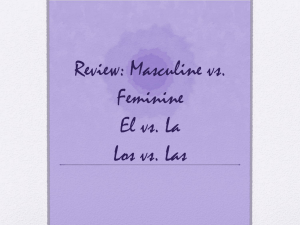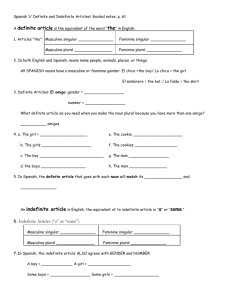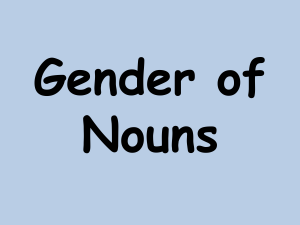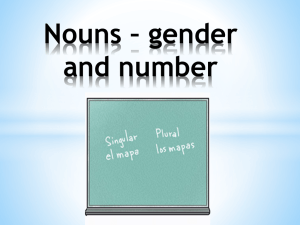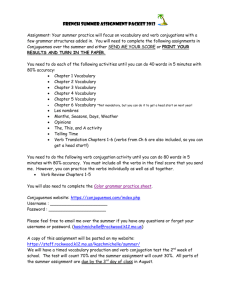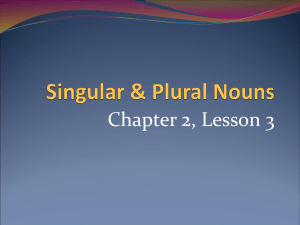2A Spanish Definite Articles
advertisement
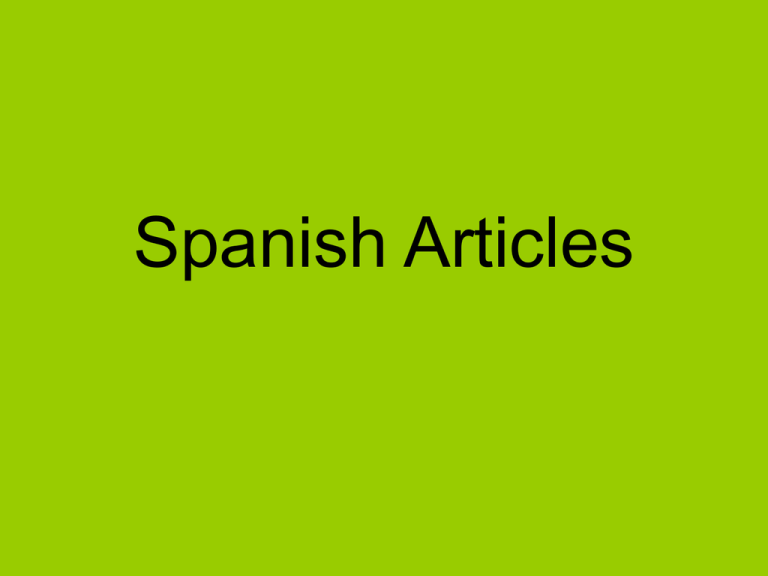
Spanish Articles In Spanish we have two kinds of articles: • Indefinite articles (a, an, some) • Definite articles (the) All nouns in Spanish are either masculine or feminine. They have gender. You should always MEMORIZE the article that goes with the noun. This will always tell you whether the noun is masculine or feminine. Spanish Definite Articles Singular Masculine Feminine Plural How can you tell if a noun is masculine or feminine? MASCULINE Nouns that end in “o” are generally masculine. • • • el chico el libro el nacho FEMININE • Nouns that end in “a”, “cion”, “sion”, or “dad” are generally feminine. • • • • la pizarra la educacion la mision la posiblidad There are always exceptions to the rules. Here are just a few exceptions: El dia El programa La noche The special exceptions you definitely have to MEMORIZE!!!! PLURAL NOUNS • To make nouns plural, we usually just add an “s” to the end of the word. • El chico – los chicos • La chica – las chicas • Don’t forget to make the definite article plural as well as your noun! •To make nouns plural that end in a consonant, we add “es” to the end of the word. •El papel – los papeles •El reloj – los relojes •La pared – las paredes To make nouns plural that end in a “z”, we drop the z and add “ces” •El lapiz – los lapices It may be necessary to add or remove an accent mark when making a plural noun. • el examen becomes los examenes •La leccion becomes las lecciones
